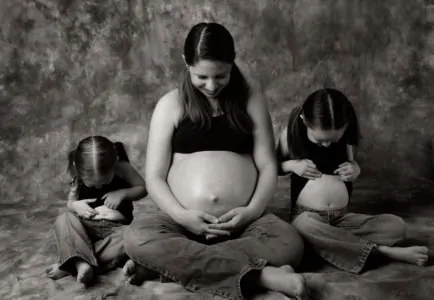Deciding when to share your pregnancy news is a massive moment. You have to balance medical advice, your career, cultural traditions, and your own comfort level. We have navigated this journey multiple times, so we are here to help you weigh the pros and cons to find the timing that feels right for you.
We will break down the risks, the benefits of waiting versus sharing early, and how to handle different groups of people. Whether you want to shout it from the rooftops immediately or keep a secret until the bump shows, here is how to plan your announcement.
Key Takeaways
- The 12-week benchmark: Many parents wait until the end of the first trimester to announce because the risk of miscarriage drops significantly after this point.
- Safety first: If your job involves heavy lifting or exposure to chemicals, you should tell your employer immediately regardless of how far along you are.
- Personal support: Telling a close friend or family member early can provide crucial emotional support if you are experiencing anxiety or severe morning sickness.
- Listen to your body: There is no strict rule; your decision should depend on your medical history, workplace environment, and personal comfort.
What Is The 12-Week Pregnancy Rule?
There is no law that says you have to keep your pregnancy a secret, but the 12-week mark is the most common milestone for announcements. This marks the end of the first trimester.
Why is this the magic number?
Doctors estimate that 10% to 20% of known pregnancies end in miscarriage. However, approximately 80% of miscarriages occur within the first 12 to 13 weeks (1).
Repeating the news of a loss to everyone you previously told about the pregnancy is incredibly painful. Consequently, many expecting parents prefer to wait until that initial high-risk period has passed before going public.
The Risk Of Miscarriage
Miscarriage risks fluctuate significantly week by week. It is not a flat risk across the entire trimester.
Excluding other specific health factors, the statistical probability of miscarriage drops as the weeks progress (2):
- 3 Weeks: 30% risk.
- 4 Weeks: 29% risk.
- 5 Weeks: 19% to 21% risk.
- 6 Weeks: 13.5% risk.
- 7 Weeks: 5% to 8.7% risk.
- 8 Weeks: 5% to 5.2% risk.
- 9 Weeks: 3.5% risk.
- 10 Weeks: 2.5% risk.
- 11 Weeks: 2.1% risk.
- 12 Weeks: 1.7% risk.
The numbers show a dramatic drop once you hit the eighth week. By the time you reach 12 weeks, the risk is under 2%.
Because of this sharp decline, some women choose a middle ground: sharing with parents or best friends around eight weeks, and waiting until 12 weeks for social media and coworkers.
Navigating Recurrent Pregnancy Loss
According to the American College of Obstetricians and Gynecologists, about 1% of women experience recurrent pregnancy loss, defined as two or more consecutive miscarriages (3).
The silver lining is that approximately 65% of women with a history of recurrent loss go on to have a successful pregnancy.
If you have experienced loss before, you might want to wait even longer than the standard 12 weeks. Your timing will likely depend on your specific situation:
- Cause of loss: If a specific medical reason was found for previous losses, you might wait until that timeframe passes.
- Treatment plans: You may want to see how your body responds to treatments first.
- Anxiety levels: Your mental health matters; if keeping it private helps you stay calm, that is the right choice.
Personal experience plays a huge role here. After my first miscarriage, we adhered strictly to the 12-week rule. After my second loss at 14 weeks, we waited for the 18-week anatomy scan. It is entirely about what makes you feel safe.
Reasons To Wait To Announce Your Pregnancy
Beyond the risk of miscarriage, there are practical and emotional reasons to keep your news under wraps for a little while.
1. Genetic Testing and Health Confirmation
Many parents wait until they receive the results of NIPT (Non-Invasive Prenatal Testing) or the nuchal translucency scan, which usually happens between 10 and 13 weeks.
Hearing the heartbeat and confirming that chromosomal development is normal can make the pregnancy feel “real” and safe enough to share. Some parents simply prefer to know exactly what they are facing medically (4) before answering questions from family.
2. Career Implications
Laws protect pregnant employees, but bias still exists. You might worry about “mommy tracking,” where employers subconsciously (or consciously) stop giving you big projects or clients.
Delaying your announcement gives you time to prove your value on current projects or secure a promotion before your leave becomes a topic of conversation.
3. Unwanted Opinions
Everyone has an opinion on pregnancy, birth, and parenting. The moment you announce, you open the floodgates for unsolicited advice.
If you want to enjoy a few weeks of peace without hearing about your aunt’s neighbor’s difficult labor or your colleague’s views on cloth diapers, keeping the secret a bit longer is a valid strategy.
Reasons To Announce Your Pregnancy Right Away
Sometimes, excitement takes over and you just want to tell the world. Other times, necessity forces your hand. Here is why you might spill the beans early.
1. Workplace Safety
This is the most critical reason to announce early. You must prioritize safety if your job involves:
- Chemical exposure: Working with solvents, lead, or radiation.
- Physical strain: Heavy lifting or climbing ladders.
- High-risk environments: Exposure to infectious diseases or violence.
If this applies to you, tell your employer immediately. Legally, employers are often required to offer accommodations to pregnant staff (5), but they cannot protect you if they do not know.
2. Severe Symptoms
It is hard to hide a pregnancy when you are running to the bathroom every twenty minutes or falling asleep at your desk at 2 p.m.
If you are suffering from hyperemesis gravidarum or extreme fatigue, telling your boss or close colleagues explains your sudden drop in energy. It allows them to offer grace and support rather than wondering if you are slacking off.
3. Needing a Support System
Pregnancy can be scary. If you are anxious, having a few trusted people in your corner is invaluable.
Sharing the news with a best friend or your mom means you have someone to vent to about the nausea, the fears, and the excitement. If a loss does occur, you will already have a support system in place rather than having to explain the pregnancy and the loss simultaneously.
Telling People You Are Pregnant
You do not have to issue a press release to everyone at once. Most people use a tiered approach: partner first, then close family, then best friends, then work, and finally, the social media sphere.
When To Announce To Your Parents
Deciding when to tell the grandparents-to-be depends heavily on your relationship dynamic.
Consider how they usually handle big news:
- The Cheerleaders: If they are supportive and respect boundaries, tell them as soon as the stick turns pink.
- The Over-Sharers: If your mom can’t keep a secret to save her life, wait until you are ready for the whole town to know.
- The Critics: If you expect a negative reaction, wait until you are mentally fortified and past the first trimester.
When To Announce At Work
If there are no safety hazards, you can usually wait. However, consider your future plans.
If you plan to return to work, telling your boss around 14 to 20 weeks is standard. This shows professionalism and gives them months to plan for your maternity leave coverage.
If you do not plan to return, you might wait longer, provided your performance does not suffer. Just ensure you check your employee handbook for notice requirements regarding leave.
Social Media Timing
Once you post that ultrasound picture on Facebook or Instagram, there is no taking it back. The news will travel instantly.
Only post when you are 100% ready for distant relatives, high school acquaintances, and coworkers to know your business. Many parents wait for the 12-week scan or the 20-week anatomy scan to post publicly.
Second Pregnancies
Second announcements often happen later. You are busier with a toddler, and you might show earlier, forcing an announcement sooner than you planned.
Also, consider when to tell your older child. Toddlers have zero concept of time; telling them you are having a baby eight months in advance might lead to months of impatient questions. Many parents wait until the bump is visible to tell siblings.
Planning the Big Reveal
You have decided on the “when,” now focus on the “how.” Be prepared for the barrage of questions that will follow your announcement.
People will immediately ask these questions:
- Timeline: “When is your due date?”
- Health: “How have you been feeling?”
- Gender: “Are you going to find out what you’re having?”
- Logistics: “Are you going back to work?”
Fun Ideas for Family
Creative announcements are a fun way to break the ice. Here are a few crowd-pleasers:
- The prop reveal: Wrap up a tiny pair of shoes or a positive test and have them open it.
- The photo trap: Group everyone for a picture and shout, “I’m pregnant!” instead of “Cheese!” while recording a video.
- Sibling promotion: Put your older child in a “Big Brother” or “Big Sister” shirt.
Professional Approach for Work
Keep the work announcement professional. Schedule a brief 1-on-1 with your direct supervisor. Follow up the conversation with an email documenting your estimated due date and your intent to take leave. This creates a paper trail and protects your rights.






